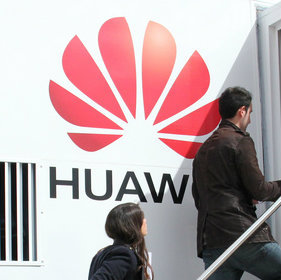
New Zealand appears to have joined a small but growing list of countries that are taking steps to exclude Chinese network equipment suppliers from their telecom markets on national security grounds.
Government authorities have written to Spark New Zealand, one of the country's biggest mobile operators, to warn it off using next-generation 5G equipment that China's Huawei Technologies Co. Ltd. has developed.
The Director-General of the Government Communications Security Bureau has told executives at Spark that any use of Huawei's 5G equipment would "raise significant national security risks."
The move comes after Spark notified authorities in accordance with local regulations of plans to deploy Huawei's 5G gear in its radio access network. It marks a setback for the operator in its development of future 5G services, which are intended to boost connection speeds and capacity for mobile customers.
In a statement, Spark said the ruling meant it would not be able to use Huawei equipment. "Spark has not yet had an opportunity to review the detailed reasoning behind the Director-General's decision," said the company. "Following our review, Spark will consider what further steps, if any, it will take."
Despite the setback, the operator insisted the government's decision would not affect its plans to launch a 5G network by July 2020, provided new spectrum has been auctioned by that date.
The decision seems bound to prevent Huawei from selling 5G equipment to Vodafone New Zealand and 2degrees, the country's other mobile network operators, and will probably mean that ZTE Corp. (Shenzhen: 000063; Hong Kong: 0763), Huawei's smaller Chinese rival, is similarly barred from New Zealand's 5G market. (See Amid the rubble of L'Aquila, ZTE tries to rebuild.)
Opponents of the Chinese companies cite their apparent links to Chinese authorities and say their network gear could include "backdoors" for spying on citizens and government organizations in the West.
But the backlash comes amid trade tensions between China and the US, as President Donald Trump's administration seeks to impose punishing tariffs on a range of Chinese goods.
Neither Huawei nor ZTE have been able to serve the major US operators since 2012, when a US government report identified both companies as a potential security threat.
Want to know more about 5G? Check out our dedicated 5G content channel here on
Light Reading.
This year, however, they have been under intense scrutiny in other parts of the world. Australia appeared to follow the US lead in August when it decided to ban Huawei and ZTE from selling 5G equipment to Australian telcos. (See Huawei, ZTE Charm Offensive Just Got Harder and Australia Excludes Huawei, ZTE From 5G Rollouts.)
In the UK, a recent government warning to operators to choose their suppliers carefully was interpreted by some analysts as evidence of concern about Huawei. Even more recently, Germany's government was reported to be considering a 5G ban on Huawei and ZTE. (See UK Govt Warns Telcos on Choice of 5G Vendors.)
Despite the government backlash, Huawei continues to land 5G deals with major European operators. Earlier this year, it secured a 5G contract with UK mobile operator Three, which has previously relied on Nokia for 3G equipment and Samsung as a 4G supplier. (See Nokia, Samsung Miss Out as Three UK Gives 5G Job to Huawei.)
It also has major 4G deals in place with BT and Deutsche Telekom, the UK and German telecom incumbents, and is working with both operators on 5G trials. (See BT Hopes to Score With 5G Broadcasting Push and DT Poised for 5G Launch as Huawei Antennas Go Up in Berlin.)
In a statement issued in response to the developments in New Zealand, Huawei pointed out that it has now signed more than 22 commercial 5G contracts, including 14 in Europe, five in the Middle East and three in the Asia-Pacific.
"Huawei is aware of Spark's statement, and we are looking into the situation," said a Huawei spokesperson in emailed comments. "As the GCSB has noted, this is an ongoing process. We will actively address any concerns and work together to find a way forward."
"As a leading global supplier of telecom equipment, we remain committed to developing trusted and secure solutions for our customers," he added.
— Iain Morris, International Editor, Light Reading
Read more about:
AsiaAbout the Author(s)
You May Also Like











